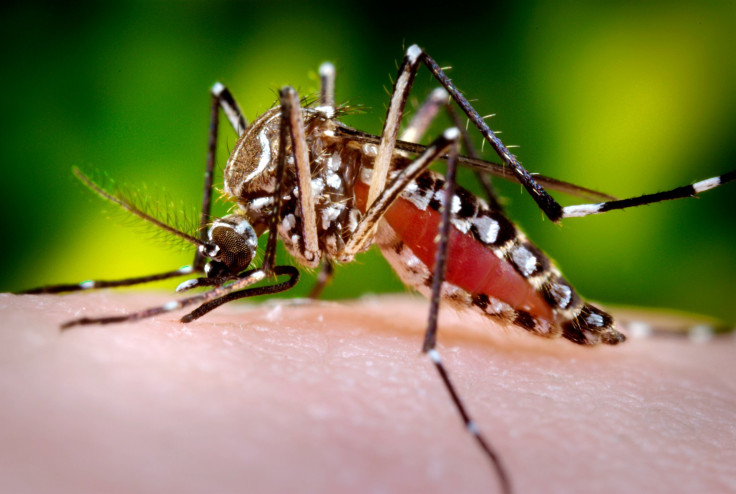'Designed To Die': Florida Releasing Thousands Of Genetically Modified Mosquitoes To Combat Disease-Carrying Species
KEY POINTS
- Florida will release 12,000 male mosquitoes in various locations each week for about 12 weeks
- These mosquitoes were genetically modified to create offspring "designed to die" before reaching adulthood
- The state has also previously used other novel means to control the disease-carrying mosquito population
Florida is set to release thousands of genetically modified mosquitoes this week in its bid to control the spread of one of the disease-carrying species.
The Florida Keys Mosquito Control District (FKMCD) and U.K.-based Oxitec will kick off the project aimed at releasing 144,000 non-biting male Aedes aegypti mosquitoes in the coming weeks.
"The Aedes aegypti mosquito makes up about four percent of the mosquito population in the Keys but is responsible for virtually all mosquito-borne diseases transmitted to humans," the FMKCD said in an earlier statement.
Among the diseases that the particular species carries are Zika, yellow fever, dengue fever and even heartworm in pets. Last year, the Keys even experienced its first dengue outbreak in the last 10 years, Miami Herald reported.
The idea for the project is simple: have the modified males mate with the females. The females are the ones found to end up transmitting disease as male mosquitoes don't bite. The males released in the project are genetically modified to have a "self-limiting" gene, which they will pass onto their offspring and prevent them from reaching adulthood.
Essentially, the offspring of these genetically modified males were "designed to die" before reaching adulthood, Oxitec said.
For the project approved by the Environmental Protection Agency (EPA) and the Centers for Disease Control and Prevention (CDC), about 12,000 male mosquitoes will be released in various locations each week for approximately 12 weeks. The untreated locations which will serve as the control groups will be monitored using mosquito traps.
In a 2016 experiment of Oxitec's mosquitoes in Brazil, the project resulted in an 80% decrease in the target mosquito populations, NBC News noted. Since 2019, about one billion genetically modified mosquitoes have been released in places like Brazil, the Cayman Islands, India and Panama to help control the spread of Aedes aegypti mosquitoes, the CDC said.
Using Modified Mosquitoes Against Disease-Carrying Species
It's not the first time Florida authorities authorized such unique means to control the population of Aedes aegypti mosquitoes, NBC News said. In earlier projects, for instance, modified mosquitoes were also released in Key West and Miami. However, instead of the males being genetically modified, both male and female mosquitoes were bred to have Wolbachia bacteria.
As the World Mosquito Program explained, Aedes aegypti mosquitoes don't have Wolbachia naturally. But when they do, they become less likely to spread viruses.
Wolbachia-carrying mosquitoes have been released in previous projects in places like Australia, Brazil and Indonesia. In Indonesia, this reportedly resulted in a 77% decrease in infection rates in areas where the modified mosquitoes were released.
Such projects may prove useful in the fight against mosquito-borne diseases. According to the World Mosquito Program, 700 million people are affected by mosquito-borne diseases each year, claiming close to a million lives.

© Copyright IBTimes 2024. All rights reserved.






















